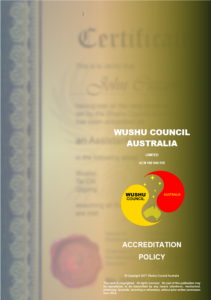John has been practising Tai Chi for a number of years and feeling the benefits of such practice. He was interested in promoting it to a broader community by participating in public demonstrations and helping with organising other events. Being involved with the Wushu & Tai Chi NSW Committee of Management gives John an opportunity to contribute to spreading knowledge and information about the ancient art of Tai Chi, Qigong and Wushu.
Author: admin
Katherine Raper
What encouraged me to join the Wushu & Tai Chi NSW was working with enthusiastic members and sharing ideas with them. I have been keen to bring along and assess how to put into practice new ideas for the Committee, Wushu Herald and the Council.
By being an advisor to the Committee, I have expanded my knowledge about Tai Chi, enhanced my confidence in public speaking in large groups and formed networks with knowledgeable people.
Alice Ma
I am an advisor to the Wushu & Tai Chi NSW Committee of Management. I have only been learning and practising Tai Chi and Qigong for a short period of time and have discovered the immense health and social benefits of practising these arts. I therefore welcome any opportunity to contribute to the furthering of the practice and the growth of Wushu Council Australia through my work at the NSW State Association helping with documentation.
Lanna Leung, Communication Officer
I came to learn about Tai Chi and Qigong in 2013 when my employer started its first staff lunch time Tai Chi session in Health Awareness week. I found the Tai Chi moves amazing and fell in love with it. Since then, I have learnt a number of different forms, including Fan and Sword. I enjoy it very much and practise regularly.
As the Communication Officer, I help disseminate information on seminars, workshops and conferences organised by our Association.
Accreditation Policy
 The Wushu Council Australia is currently working on the implementation of a new Accreditation System for Wushu, Tai Chi and Qigong instructors. The new system will be non-discriminatory, transparent and open to every suitable practitioner regardless of their membership in other organisations. The Wushu Council Australia is committed to helping all practitioners in their professional growth.
The Wushu Council Australia is currently working on the implementation of a new Accreditation System for Wushu, Tai Chi and Qigong instructors. The new system will be non-discriminatory, transparent and open to every suitable practitioner regardless of their membership in other organisations. The Wushu Council Australia is committed to helping all practitioners in their professional growth.
If you are interested, please let us know by writing to
admin@auswushu.com.au.
A confidential discussion can also be arranged.

